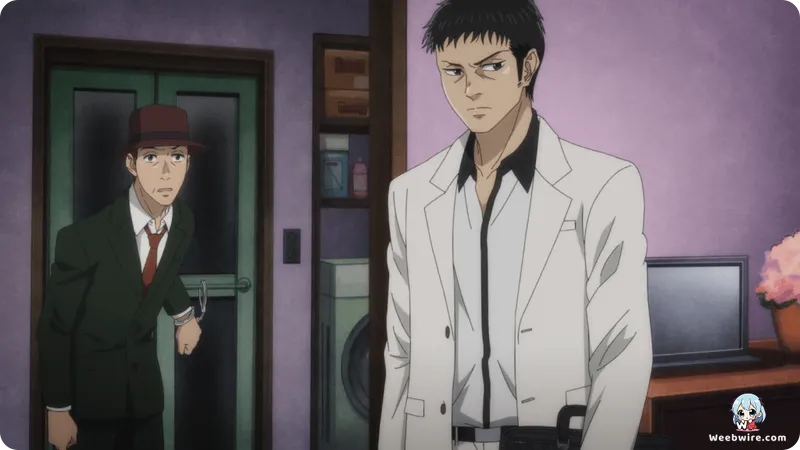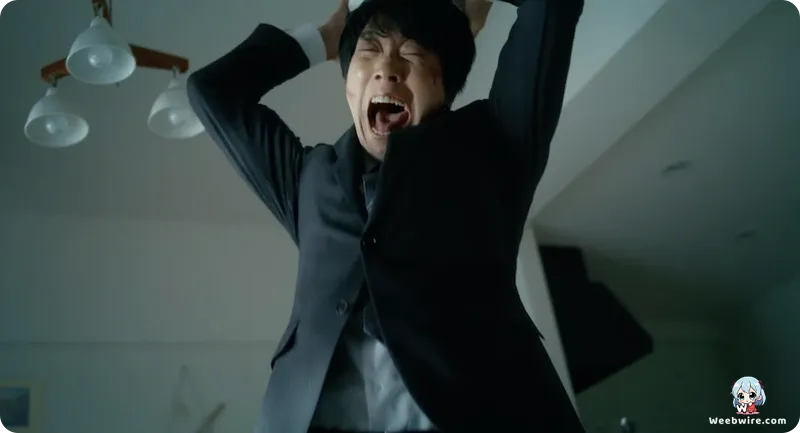From Salaryman to Strategist: How Agatha Christie's Lessons Shaped the Dark Heart of My Home Hero
3 months ago
Share this news:

My Home Hero distinguishes itself within the contemporary thriller genre by presenting a terrifyingly relatable scenario: an unassuming, middle-aged salaryman forced to execute a flawless crime to protect his family. The acclaimed anime adaptation, based on the manga by Naoki Yamakawa and Masashi Asaki, centers on the internal conflict of Tetsuo Tosu. His primary asset is not physical strength but an extensive, almost obsessive, understanding of classic crime fiction. This unique intellectual foundation serves as the pivot point for the entire series, transforming a seemingly helpless 'everyman' into a formidable strategist capable of maneuvering against ruthless organized crime syndicates.
The Blueprint of Survival: Crime Fiction as Strategy
Tetsuo’s profound appreciation for authors such as Arthur Conan Doyle and the legendary Agatha Christie is far more than a superficial character trait; it is the essential engine driving the plot’s survival. After inadvertently killing Nobuto Matori, his daughter Reika’s abusive boyfriend, Tetsuo’s immediate response is chillingly calculated: he applies the decades of fictional crime techniques he has absorbed. The narrative structure of My Home Hero is meticulously constructed around Tetsuo’s ability to recall and deploy highly specific murder concealment methods drawn directly from mystery novels. This detail elevates the series beyond a standard chase narrative, positioning it as a brilliant meta-commentary on the genre itself, where fictional blueprints guide real-world survival.
Manga author Naoki Yamakawa deliberately chose to subvert traditional thriller tropes. Unlike typical heroes who are often former military personnel, seasoned detectives, or possess latent powers, Tetsuo is intentionally average, prone to panic, and physically weak. His sole driving force is a desperate, primal paternal instinct. This narrative choice significantly amplifies the tension, forcing the stakes to rely entirely on psychological warfare rather than brute strength. This subversion resonates deeply with viewers, ensuring that every strategic victory is hard-earned and every failure feels acutely relatable as he engages in a mental chess match with the Matori crime family.

Procedural Realism and the Role of Kasen
Adding to the intensity is the procedural realism of the cover-up. While the initial murder is unplanned, the subsequent steps including dismemberment, disposal logistics, blood spatter management, and constructing airtight alibis are depicted with clinical, horrifying accuracy. The series often leans into procedural horror, prioritizing forensics and logistics over conventional action sequences. This painstaking dedication to realism, despite being inspired by fiction, firmly grounds the psychological terror. Tetsuo’s elaborate efforts to stage Nobuto’s disappearance as either an internal gang conflict or a runaway situation reveal an astonishing level of detail derived from his years studying crime detection and concealment.
The adaptation itself provided an industry footnote: the anime was produced by Tezuka Productions. Known primarily for adapting Osamu Tezuka's classics like Astro Boy, their shift to the gritty, hyper-violent, and morally complex Seinen drama of My Home Hero surprised many observers, successfully showcasing the studio's extensive versatility.
Furthermore, the emotional core of the series lies in the unconventional partnership between Tetsuo and his wife, Kasen. Immediately aware of the murder, Kasen quickly becomes an equally resourceful accomplice. Their marriage, strengthened by the shared, deadly secret and their absolute trust in protecting their daughter, forms the vital psychological center of the series. Kasen’s calculated actions often surpass Tetsuo’s amateur efforts, revealing her own strategic depths. Ultimately, My Home Hero proves that in a world of high-stakes crime, the most lethal weapon is sometimes nothing more than a well-read mind.